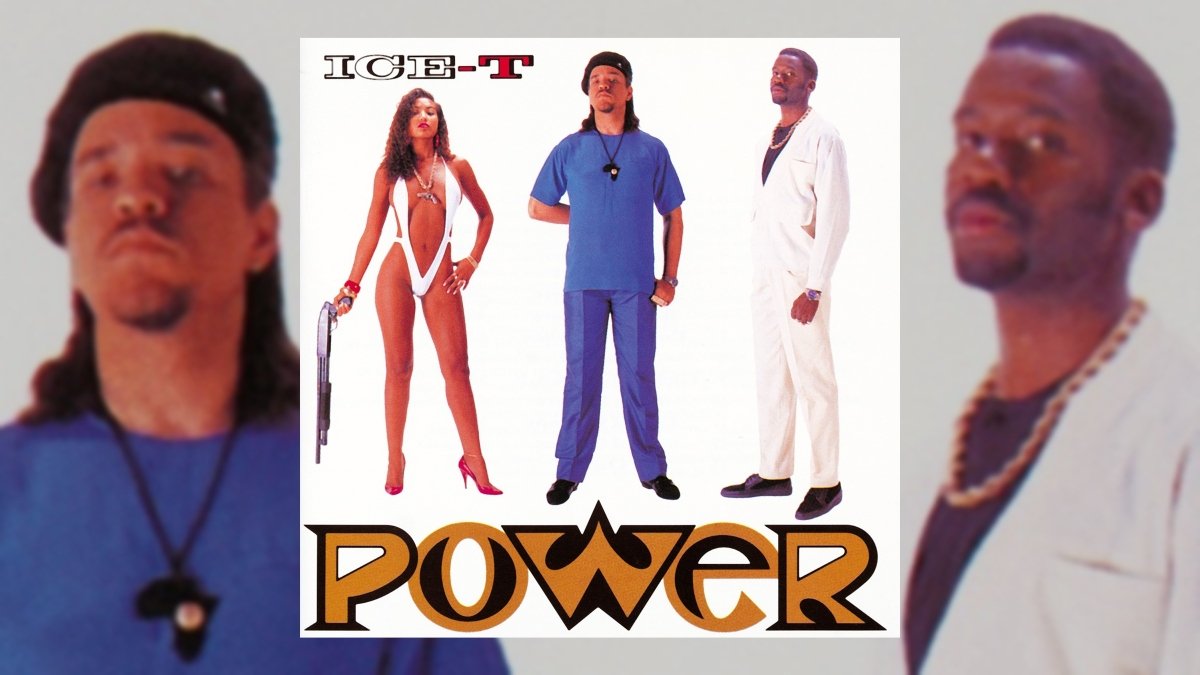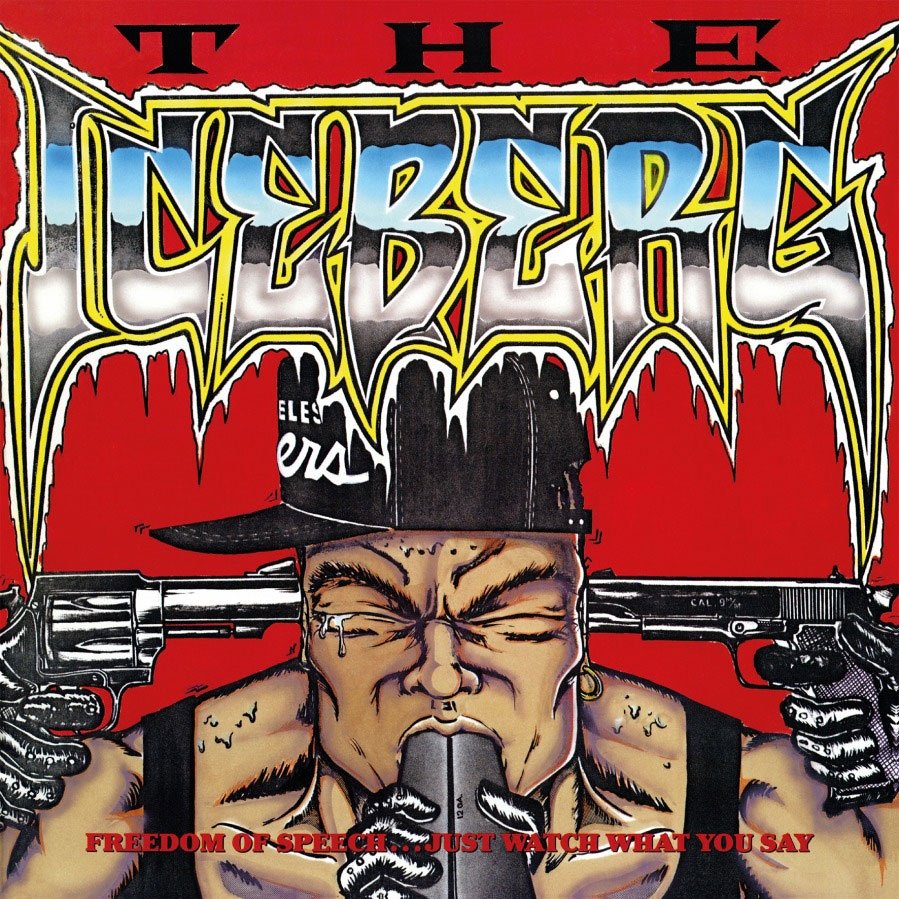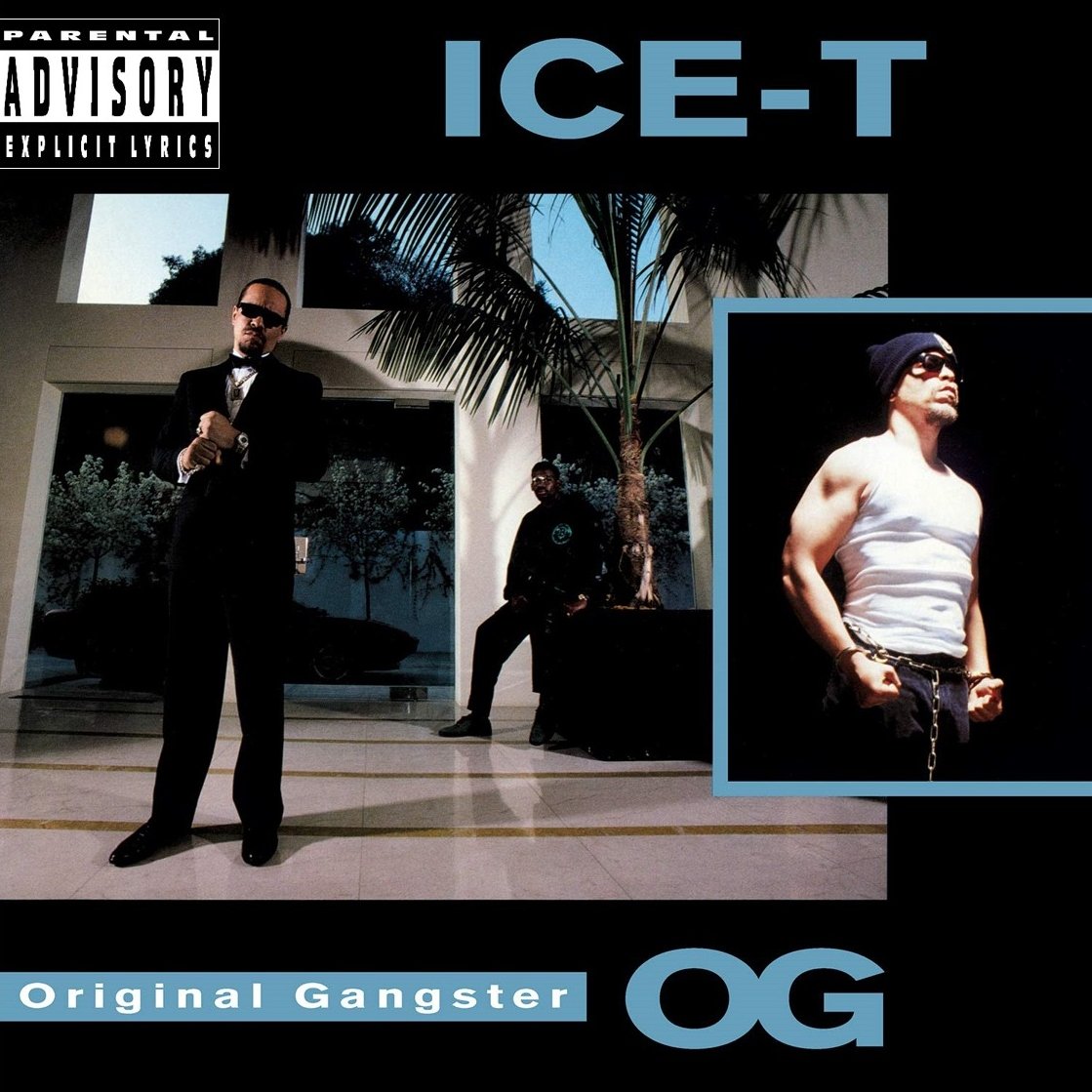Happy 35th Anniversary to Ice-T’s second studio album Power, originally released September 13, 1988.
Gangsta rap isn’t really into consequences. For the most part, the “gangsta” rapper spends an album musing about drug dealing, stealing, fucking, and often killing with impunity. He muscles out the competition, vanquishes his enemies, evades the police, and, if he’s lucky, enjoys a little extracurricular companionship. The invincibility can be part of the appeal. In many cases, the gangsta rapper has grown up in extreme poverty, so spinning tales of living like an invulnerable superhero and getting away with committing all type of dirt is a release of sorts.
Now, for those of you keeping track, I used the previous paragraph almost verbatim in a tribute I wrote celebrating the 30th anniversary of Scarface’s 1991 debut album Mr. Scarface is Back. I made the case that Scarface was a pioneer in that he delved into the psychological impact of engaging in illicit activity. And while that remains true, Tracy “Ice-T” Marrow was the first emcee to talk about how “gangsta” actions often have dire consequences, and overall, crime does not pay. This sentiment echoes throughout Power, Ice-T’s second and best album, released 35 years ago.
Ice-T is one of the longest-tenured and respected rappers in hip-hop history. After spending the early to mid ’80s recording electro-infused party jams (and appearing in the films Breakin’ and Breakin’ 2: Electric Boogaloo), he recorded and released his certified Gold debut Rhyme Pays in 1987, one of the earliest gangsta rap albums. Ice-T’s lyrics and music were influenced by authors like Robert “Iceberg Slim” Beck and albums like Lightnin’ Rod’s Hustlers Convention. Through all the flash and style in those works, there’s always an underlying message that living illegally carries a lot of risk. Ice-T always maintained that he made a lot of his money before he started rapping, through illegal means, making him acutely aware of all the pitfalls that await those trying to eke out a criminal living.
Ice-T really broke through when he released “Colors,” the theme song from the 1988 film of the same name. The film was one of the first to explore gang warfare throughout Los Angeles, and Ice-T used the song to detail the danger and death that went along with being a member of a gang. He followed the same ethos through the recording of Power.
“I was a hood politician,” he told Brain Coleman in Check the Technique. “I wanted people to understand what went on in the city. [Chuck D] rapped about the president, I rapped about the police. My politics never reached past city limits. I rapped in a smaller room. I was rapping about the guy who says he’s gonna kill you tomorrow.”
Listen to the Album:
Songs like “Drama” drive home the point. The incredibly dark track follows Ice adopting the persona of a street criminal who’s just completed a stint in prison, now on the streets looking for revenge. Cocky and high on angel dust, he and his crew roam through the ’hood, committing drive-bys on his enemies and burglarizing warehouses full of electronics. However, his reign of terror ends as he’s arrested again, convicted, and sent to death row.
The song’s final verse plays like an ’80s version of the aforementioned Hustlers Convention, except without the redemption. Ice laments the choices he’s made in his life, rapping, “A puppet of the big game, an institutional thing / I wouldn’t be here if I fed my brain.” He then explains how the harsh reality of prison utterly dehumanizes all who are incarcerated, rapping “The joint is like an oven of caged heat / You’re just a number, another piece of tough meat.”
On “High Rollers,” the album’s second single, Ice-T educates listeners about the lifestyles of those above the street level that are living illegally. But even while detailing the expensive trappings and tastes of these street hustlers turned big shots, he notes the ever-present dangers that come with making a living through illicit means, as he warns, “Yes, the game has flash, but sometimes hurts / Behind any mistake, hard times lurks / And jail’s not your only problem, though it may seem / You just may die by a barrage from an M-16.” The beat, which samples Edwin Starr’s “Easin’ In,” creates a smooth blacksploitation vibe to the track. Zulu Nation O.G. Afrika Islam produced the entire album, and is integral to Power’s success.
Other songs on the album have a political bent, and feature Ice-T kicking knowledge about how to live off the beaten path without subjecting yourself to a criminal existence. The title track explores the dynamics of power, and he relentlessly pursues it through his music in order to influence the minds of his listeners. “Radio Suckers” is Ice-T’s closest approximation to a Public Enemy track, as he hammers radio stations for refusing to play his music and opting to play less “real” alternatives.
At times, Ice-T eschews the ’hood politics and raps about making dope music. “I’m Your Pusher,” the album’s first single, is one of the first tracks to draw parallels between the rap game and the dope game. Essentially a slowed-down rap remake of Curtis Mayfield’s “Pusher Man,” Ice-T raps about distributing his music like its weight, offering an alternative to the drug epidemic that gripped the nation. He raps, “I'm the kingpin when the wax spins / Crack or smack will take you to a sure end / You don’t need it, just throw that stuff away / You wanna get high? Let the record play…”
The song also features one of a few disses towards LL Cool J that appear on Power. Ice-T said he targeted LL because as one of the few rappers from Los Angeles that was receiving nationwide acclaim, he felt he had to take it to this East Coast cat proclaiming that he was the best.
Enjoying this article? Click/tap on the album covers to explore more about Ice-T:
Occasionally, Ice-T just stays on the lyrical tip and forgoes the ’hood politics and “scared straight” tales. “The Syndicate” features Ice-T and posse members Henry Gee and Donald D cutting loose on a loop from Parliament’s “Aqua Boogie.” The Rhyme Syndicate was Ice-T’s crew of like-minded emcees and DJs from both Los Angeles and New York. Donald D originally made his name on New York radio as the emcee for producer Afrika Islam, so he had been battle-tested since the days of the park jams. Here he raps, “Stick to your mind like paste, it can't be erased / Face to face I overpower like bass / To the climax, I don't carry a sax / I carry an axe to tax and wax those who rap.”
Ice-T also manages to toss in another dig at LL, rapping, “How many times on one album can you say you're def? / ‘I’m BAAAAADDDD!!!!!’ – Yo punk, save your breath / That's weak shit from a weak mind /And a weak mind creates weak rhymes.”
Some tracks serve as solo showcases for Ice-T’s skills. “Personal” is one of the better songs on Power, as Ice-T kicks some emcee shit over a beat that melds that guitar-driven breakdown to Heart’s “Magic Man” and the drum breakdown from “Let a Woman Be a Woman and a Man Be a Man” by Dyke and the Blazers. Ice sounds just as comfortable rhyming over fast beats as he does slow, letting the words flow with lines like, “My style don't ramble, you shouldn't gamble / With your grill, I got a fist like an anvil.”
Power also features the relatively raunchy “Girls L.G.B.N.F.,” as in “Let’s Get Butt Naked and Fuck.” Here Ice-T opts for stripped down production, rhyming about engaging in wild sexual escapades over a simple drum track and the guitar from The Pointer Sisters’ “Yes We Can Can.” According to Ice in Check the Technique, the song was another sideways dis to LL Cool J, mocking him for making songs like “I Need Love,” while he preferred to express his desire for sexual congress through more “direct” means.
Power ends with “Soul On Ice” another Iceberg Slim-inspired cautionary tale, which takes its name from a collection of essays written by Black Panther Eldridge Cleaver back in the 1960s. Ice-T performs a lengthy spoken word piece over the entirety of Les McCann’s “Harlem Buck Dance Strut,” detailing what is supposed to be a day of triumph, as he prepares to celebrate getting out of the dope and hustling game forever. And though he struts through most of the track with an air of invincibility, he succumbs to a nameless and faceless assassin’s bullet, his life ending just as he was about to leave his life of crime behind.
A lot has changed for Ice-T in the three-and-a-half decades that followed the release of Power. For one, he’s spent overtwo-thirds of that time in front of the camera, both as a cast member of Law & Order: SVU and in other film roles. He’s also stayed busy musically, releasing another ten or so albums as both a solo rapper or as a member of the group Body Count. He even won a GRAMMY with the band for Best Metal Performance in 2021. He squashed his beef with LL decades ago, and even spent time touring with him on this summer’s F.O.R.C.E. tour. Somewhere in between, he also became the face of freedom of speech in hip-hop.
But even though he’s spent two-and-a-half decades as a regular on a cop show, he’s held true to the philosophy that he expresses on Power. He continues to echo that working towards gaining knowledge and power through positive means is always a better road to trying to make it through a life of crime. In that way, Power has helped to define Ice-T’s enduring legacy.
LISTEN:
Editor's note: this anniversary tribute was originally published in 2018 and has since been edited for accuracy and timeliness.



